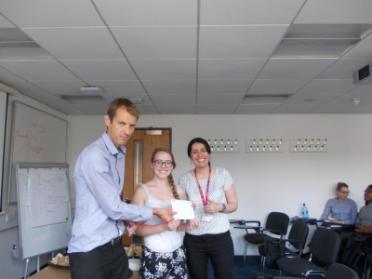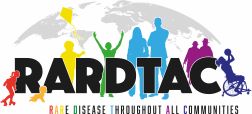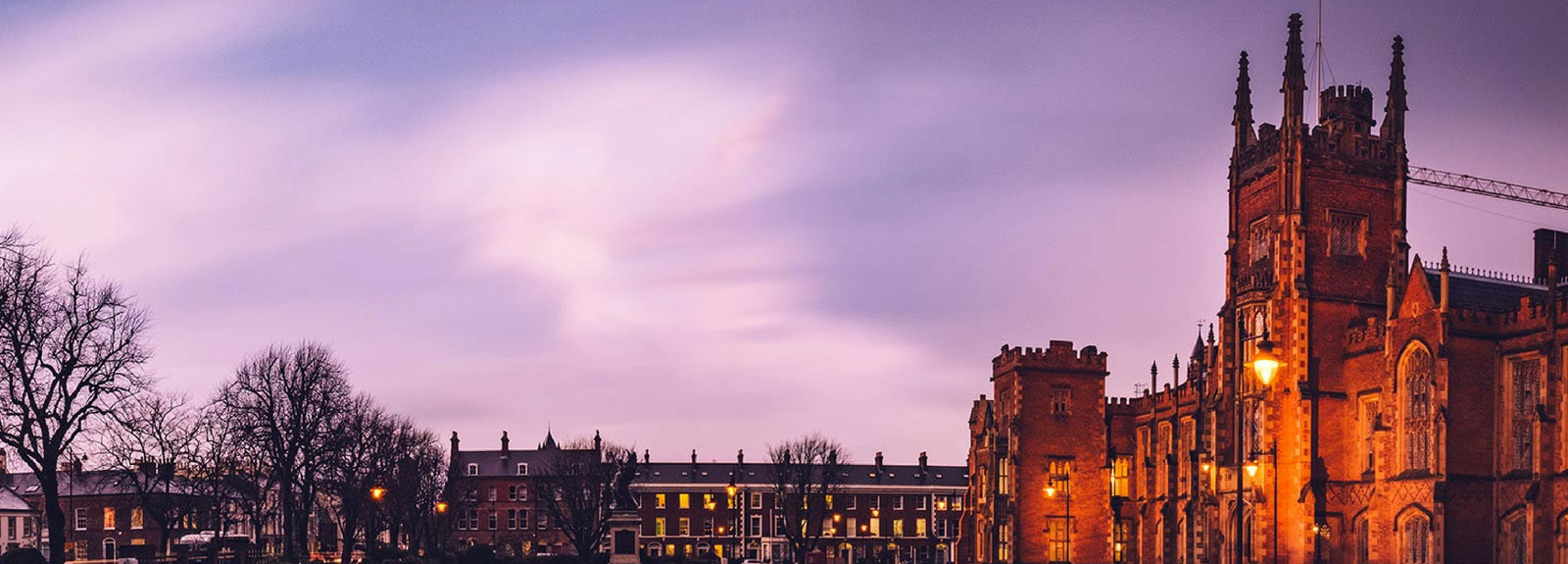Past team members
Our BSc students...
Declan O'Hare is conducting his research project with Dr Julie McMullan, Ashleen Crowe & Prof AJ McKnight entitled, "Assessing the Impact of Coronavirus (COVID-19) on those affected by rare
disease".
This study aims to assess the health, healthcare and psychosocial impact of coronavirus (COVID-19) on patients with rare disease(s) and to evaluate its impact on caregivers during and after the coronavirus (COVID-19) pandemic. Rare diseases are defined by the European Union as those affecting fewer than 1 in 2,000 individuals, cumulatively affecting 1 in every 17 persons at some point in their lives. It is estimated that 350 million people globally have a rare disease.
Coronavirus disease (COVID-19) is an infectious disease caused by a virus [severe respiratory syndrome coronavirus 2 (SARS-COV-2)]. COVID-19 was first identified in patients in Wuhan province in China at the end of 2019. From there the virus has spread to other countries worldwide with the World Health Organisation declaring it a pandemic on 12th March 2020. The number of patients affected, and the death rate, continues to rise. Many countries have now imposed restrictions with many populations having experienced a period of lockdown. Being diagnosed with a rare disease can lead to a significantly reduced lifespan and quality of life for patients and their families; accurate diagnosis and early intervention significantly improves long term outcomes for rare disease patients.
Access to clinical trials, medications, and home care services has been severely curtailed due to COVID-19. Individuals living and working with rare diseases consistently describe challenges accessing accurate information about individual rare diseases and accessing appropriate services; anecdotally this has been exacerbated due to the coronavirus (COVID-19) pandemic. Individuals living with rare conditions often describe feeling ‘isolated’ and ‘dismissed’ so effective communication and provision of information is critical.
This project involves evaluating the impact of the coronavirus (COVID-19) pandemic on patients with rare diseases.
Previous Staff and Students
Staff:
- Dr Julie McMullen (2017-2021) was a postdoc with our team carrying out research around communication and education of rare diseases. Julie enjoys meeting the people 'on the ground' and hearing their stories and experiences. Julie is keen that the work she does raises awareness of rare diseases as well as contributing to improving care in Northern Ireland and further afield. IJulie was shortlisted for the QUB postdoc's 'outstanding engagement' award for her rare disease work several times; this quote from a rare disease patient says it all, “Julie has boundless energy, rolling her sleeves up and giving her all to help identify and prioritise rare disease actions”. For more information on Julie's research click here for more information on Julie's research
- Dr Helen McAneney (formally to Sept 2020) as a lecturer in the Centre for Public Health at QUB For more information on Helen's rare disease research click this link for Helen's research papers. Helen has continued working on rare diseases at University College Dublin and frequently collaborates with our local team.
- Dr Kerry Moore did her PhD with Prof O'Neill & Prof McKnight researching epigenetic risk factors for Parkinson's Disease. More recently, Kerry focused her attention towards supporting and improving the lives of individuals living with rare diseases. Kerry works with QUB colleagues and the Northern Ireland Rare Disease Partnership; she is a recipient of the The Rank Foundation's Time to Shine Internship Programme. For more information on Kerry's research click here for more information on Kerry's research
- Dr Jane Miller (2017-2019)
PhD Students:
- Dr Katie Kerr (Brown; Oct 2017- Feb 2021). Katie undertook her PhD research with QUB and BHSCT having a very translational project that has made significant changes helping to improve the diagnosis of rare diseases.
- Publications
- Identification and validation of a novel pathogenic variant in GDF2 (BMP9) responsible for hereditary hemorrhagic telangiectasia and pulmonary arteriovenous malformations. Balachandar, S., Graves, T. J., Shimonty, A., Kerr, K., Kilner, J., Xiao, S., Slade, R., Sroya, M., Alikian, M., Curetean, E., Thomas, E., McConnell, V., McKee, S., Boardman-Pretty, F., Devereau, A., Fowler, T. A., Caulfield, M. J., Alton, E. W., Ferguson, T., Redhead, J., … Shovlin, C. L., March 2022. In: American journal of medical genetics. Part A, 188, 3, p. 959–964. 10.1002/ajmg.a.62584
- A scoping review and proposed workflow for multi-omic rare disease research, Kerr, K., McAneney, H., Smyth, L., Bailie, C., McKee, S. & McKnight, A. J., 30 Apr 2020, In: Orphanet J Rare Dis. 15, 107. 10.1186/s13023-020-01376-x
- Epigenome-Wide Microarray Analysis of Pre- and Post-Transplant Methylation Profiles in Kidney Transplant Recipients. American Society of NephrologyKidney Week 2020 - Digital due to COVID-19, United States, Kerr, K., Smyth, L., Kilner, J., Maxwell, P., McAneney, H. & McKnight, A. J., 01 Oct 2020, p. 29. 30 Oral presentation.
- Genetic strategies to understand human diabetic nephropathy: in silico strategies for molecular data - association studies, Cañadas-Garre, M., Smyth, L., Anderson, K., Kerr, K. & McKnight, A., 01 Jan 2020, Methods in Molecular Biology: Molecular Methods in Diabetic Nephropathy. Springer Nature, Vol. 2067. p. 241-275. 10.1007/978-1-4939-9841-8_16
- Genetic strategies to understand human diabetic nephropathy: wet-lab approaches, Smyth, L., Kerr, K., Duffy, S., Kilner, J. & McKnight, A., 01 Jan 2020, Methods in Molecular Biology: Molecular Methods in Diabetic Nephropathy. Springer Nature, Vol. 2067. p. 205-240 26 10.1007/978-1-4939-9841-8_15
- Perspectives on a NI Rare Disease Registry, McMullan, J., Crowe, A., Kerr, K., Bailie, C., McAneney, H., McLaughlin, F., Collins, C. & McKnight, A. J., 31 Jan 2020. https://www.qub.ac.uk/sites/RareDisease/News/MovingtowardsNIRADCARANorthernIrelandRAreDiseasesCongenitalAbnormalitiesRegistry.html
- Communication strategies for rare cancers: A systematic review protocol, Bell, C., Kerr, K., Moore, K., McShane, C., Anderson, L., McKnight, A. & McAneney, H., 23 Apr 2019, In: Systematic Reviews. 8, 102, p. 1-6. 10.1186/s13643-019-1017-5
- Differential methylation as a diagnostic biomarker of rare renal diseases: a systematic review, Kerr, K., McAneney, H., Flanagan, C., Maxwell, A. P. & McKnight, A., 16 Aug 2019, In: BMC Nephrology. 20, 9 p., 320. 10.1186/s12882-019-1517-5
- Differential methylation in rare ophthalmic disorders: A systematic review protocol, Kerr, K., McAneney, H. & McKnight, A., 10 Apr 2019, In: Systematic Reviews. 8, 4 p., 93. 10.1186/s13643-019-0999-3.
- Identification of differentially expressed genes from kidney transplant recipients in Northern Ireland, The American Society of Human Genetics - Houston, United States. Kerr, K., Smyth, L., Kilner, J., Maxwell, A., McAneney, H., Young, I., McGuinness, B., Kee, F., On behalf of NICOLA & McKnight, A., 23 Jul 2019 Oral Presentation.
- Improving rare disease identification and coordinating health and social care priorities, McAneney, H., Crowe, A., Millar, J., Kerr, K., McMullan, J. & McKnight, A. J., 03 Jul 2019, In: European Journal of Human Genetics. 27, P19.39C.
- Protocol for a scoping review of multi-omic analysis for rare diseases, Kerr, K., McAneney, H. & McKnight, A., 05 May 2019, In: BMJ Open. 9, 4 p., e026278. 10.1136/bmjopen-2018-026278
- Systematic review of differential methylation in rare ophthalmic diseases, Kerr, K., McAneney, H., Smyth, L., Flanagan, C., Silvestri, J., Nesbitt, M. A., Wooster, C. & McKnight, A., 13 Nov 2019, In: BMJ open ophthalmology. 10.1136/bmjophth-2019-000342
- Conference Presentations
- The Odyssey Continues: A ‘deep dive’ into the NI’s 100,000 Genomes Project’s undiagnosed- Oral presentation, Irish Society of Human Genetics, Ireland, Dublin. C McKenna, K Kerr, D Thomas, S McKee, S Heggarty, W Wright, R Martin, P Hart, G Rea, C Flanagan, AJ Mcknight. Upcoming, September 2022.
- Cost-effective, collaborative approach to prioritise variants of unknown significance from whole genome sequencing data: unexplained end stage renal disease exemplar. Poster presentation, European Society of Human Genetics, Austria, Vienna. Kerr K, Mckenna C, Thomas D, Kilner J, Flanagan C, Mckee S, Mcknight AJ. June 2022.
- Longitudinal epigenome wide analysis of kidney transplant recipients pre- and post-transplant identifies differentially methylated genes - Oral presentation, United Kingdom Kidney Week, Virtual. Kerr K, Kilner J, Maxwell AP, McKnight AJ, Smyth LJ. October 2021.
- Lessons learned about whole genome sequencing from Northern Ireland’s participation in the 100,000 Genomes Project - Oral presentation, Irish Society of Human Genetics, Virtual.Kerr K, McKee S, Flanagan C, McKnight AJ. September 2021.
- A multi-omic approach to diagnosing rare disease, Joint North South Rare Disease Conference 2018 - Riddel Hall, Belfast, United Kingdom. Kerr, K., McAneney, H. & McKnight, A., Mar 2018.
- Improving rare disease identification and coordinating health and social care priorities, European Conference of Human Genetics 2018 - milan, Italy. McAneney, H., Miller, J., Crowe, A., Brown, K., McMullan, J. & McKnight, A., 2018
- Katie also won numerous prizes for her collaborative research, including:
- Crystal award poster presentation, Rare Disease Day, February 2020
- Genomics of Rare Disease Conference, PhD Student Bursary (2019)
- Emily Sarah Montgomery Travel Scholarship (2018)
- School of Medicine, Dentistry and Biomedical Sciences Travel Scholarship (2018)
- Second place prize at the Postgraduate Research Forum, Queen’s University Belfast (2018)
BSc Students:
- Declan O'Hare (2020-2021) worked with Dr Julie McMullan, Ashleen Crowe and Prof AJ McKnight exploring the impact of COVID-19 on those affected by rare disease(s).
- Several reports were compiled for individual disease charities: News | Rare Disease Focus: supporting rare disease throughout all communities IMPaCCT Reports
- Kirsten Downes (2019-2020) conducted her research project with Dr Julie McMullan and Prof AJ McKnight entitled, "Caring for someone with a rare disease: An insight into the life of a carer". This project explored challenges carers face when looking after someone with a rare disease and identified how they could be better supported in this role. For more information on Kirsten's project please see here.
- McMullan, J., Crowe, A., Downes, K., McAneney, H., McKnight, AJ. (2020) medRxiv [Preprint]. Carer reported experiences: supporting someone with a rare disease. 20150581; Link to our preprint on carer reported experiences. Further Reading: QUB Rare Disease Website. https://www.qub.ac.uk/sites/RareDisease/
-
The final version of our peer-reviewed, published paper is available to view at the following links: http://doi.org/10.1111/hsc.13336 ; Carer reported experiences: Supporting someone with a rare disease - McMullan - - Health & Social Care in the Community - Wiley Online Library. McMullan, J., Crowe, A., Downes, K., McAneney, H., McKnight, AJ. (2021). Carer reported experiences: supporting someone with a rare disease. Health and Social Care in the Community, early online version.
-
A summary document of available resources identified through our RARDTAC project may be downloaded from here: Support for Rare Disease Carers in Northern Ireland — Queen's University Belfast (qub.ac.uk)
- Jayne Gillis (2019-2020) conducted her research project with Katie Kerr, Dr Laura Smyth, and Prof AJ McKnight entitled, "Multi-omic analyses to improve molecular diagnosis for rare diseases". A critical challenge for the rare disease community is improving the ‘diagnostic odyssey’; more than five years is the average time to diagnosis so this project explored options to improve diagnosis
- Alex Patterson (2019-2020). Related to our rare disease work, Alex Patterson worked with Dr Cheryl Flanaghan and Prof AJ McKnight researching, "Obesity educational interventions in clinical programmes: a review of current course content and identified gaps".
- Marc Bentley (2018-2019) worked with Dr Helen McAneney, Prof AJ McKnight and Katie Kerr to evaluate non-traditional medical care for patients living with rare disorders: Complementary and alternative medicines (CAMs).
- Taylor McClenaghan (2018-2019) worked with Drs Julie McMullan, Helen McAneney & AJ McKnight exploring perceptions and experiences of rare diseases among the General Practitioner (GP) population in Northern Ireland.
- McMullan, J., McClenaghan, T., Crowe, A., McKnight, A., & McAneney, H. (2019). Perceptions and experiences of rare diseases among the GP population in Northern Ireland. British Journal of General Practice, 69(Suppl 1),
[bjgp19X703637]. Link to our GP rare disease abstract
- McMullan, J., McClenaghan, T., Crowe, A., McKnight, A., & McAneney, H. (2019). Perceptions and experiences of rare diseases among the GP population in Northern Ireland. British Journal of General Practice, 69(Suppl 1),
Summer Students:
- The COVID-19 pandemic in 2020 & 2021 curtailed our plans to welcome a student to our team in summer 2020 & 2021.
- Reagan O'Kane (2019)
- Gordon Revolta (2019), working primarily with Noleen McCorry
- Catherine Bell (2018)
- Communication strategies for rare cancers: a systematic review protocol. Syst Rev. 2019 Apr 23;8(1):102. doi: 10.1186/s13643-019-1017-5.
- Lauren McMullan (2017)
- McMullan J, Crowe A, Bailie C, Moore K, McMullan LS, Shamandi N, McAneney H, McKnight AJ (2020). Improvements needed to support people living and working with a rare disease in Northern Ireland: current rare disease support perceived as inadequate. Orphanet Journal of Rare Disease 15:315. https://doi.org/10.1186/s13023-020-01559-6. Link to the preprint of our rare disease groups 2020 paperNahid and Lauren also won 2nd prize in the CPH summer student symposium News | Congratulations to our Summer Studentship symposium winners | Centre for Public Health | Queen's University Belfast (qub.ac.uk)
- Nahid and Lauren also won 2nd prize in the CPH summer student symposium News | Congratulations to our Summer Studentship symposium winners | Centre for Public Health | Queen's University Belfast (qub.ac.uk)
- Nahid Shamandi (2017)
- McMullan J, Crowe A, Bailie C, Moore K, McMullan LS, Shamandi N, McAneney H, McKnight AJ (2020). Improvements needed to support people living and working with a rare disease in Northern Ireland: current rare disease support perceived as inadequate. Orphanet Journal of Rare Disease 15:315. https://doi.org/10.1186/s13023-020-01559-6. Link to the preprint of our rare disease groups 2020 paper
- Nahid and Lauren also won 2nd prize in the CPH summer student symposium News | Congratulations to our Summer Studentship symposium winners | Centre for Public Health | Queen's University Belfast (qub.ac.uk)



